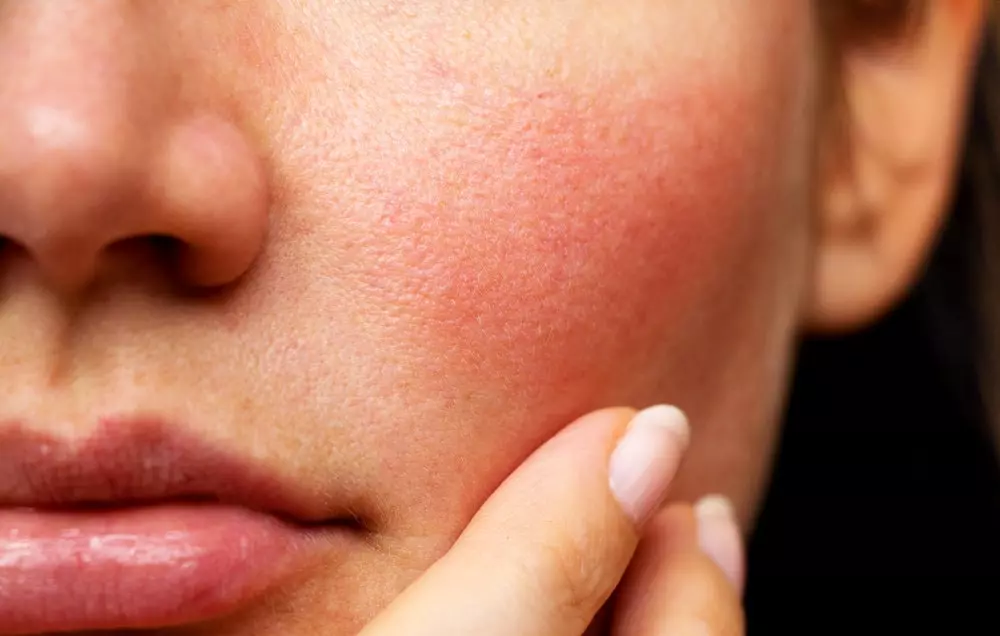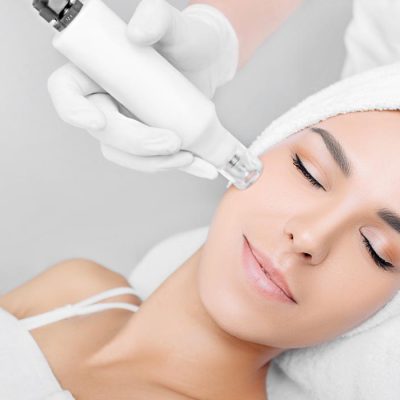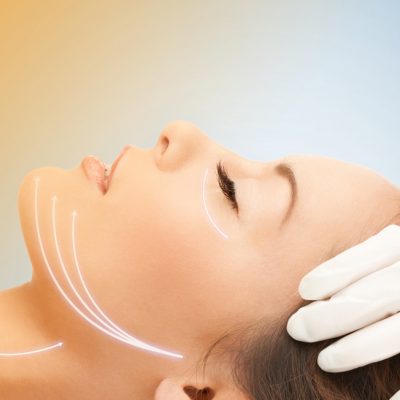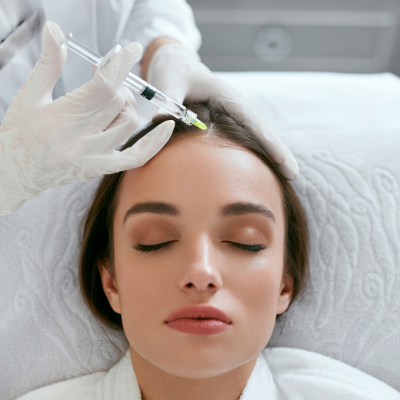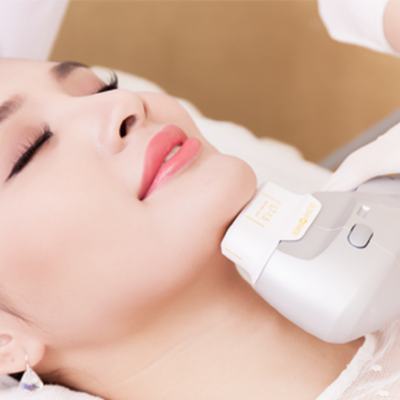If you have sensitive skin, it’s important to be cautious when it comes to facials. Here are some tips to keep in mind:
- Look for facials that are specifically designed for sensitive skin. Many spas and skincare brands offer facials that are formulated with gentle, soothing ingredients that won’t irritate your skin.
- Avoid facials that use harsh exfoliants or abrasive tools. These can cause redness, irritation, and even damage to your skin. Instead, opt for gentle exfoliation methods like enzymatic peels or gentle scrubs.
- Make sure your esthetician knows about your sensitive skin. They can adjust their technique and product choices to ensure that your facial is as gentle and non-irritating as possible.
- Consider getting a hydrating facial. Sensitive skin often lacks moisture, so a hydrating facial can help to soothe and nourish your skin while also improving its overall appearance.
- Skip any facials that involve steam or hot towels. These can be too harsh for sensitive skin and can actually cause more irritation.
- Finally, be sure to patch test any new skincare products or treatments before using them on your entire face. This will help you avoid any potential allergic reactions or irritation.

Table of Contents
sensitive skin care
If you have sensitive skin, it’s important to be gentle and cautious with your skincare routine to avoid irritation and discomfort. Here are some tips for taking care of sensitive skin:
- Use gentle, fragrance-free products. Harsh ingredients and fragrances can irritate sensitive skin. Look for products that are specifically formulated for sensitive skin and free of irritating ingredients like alcohol, fragrances, and harsh chemicals.
- Cleanse your skin carefully. Use a gentle, non-foaming cleanser to avoid stripping your skin of its natural oils. Avoid hot water and washcloths, which can be too harsh for sensitive skin.
- Moisturize regularly. Sensitive skin can be prone to dryness, so it’s important to use a gentle, hydrating moisturizer to keep your skin soft and supple. Look for moisturizers that are free of fragrances, dyes, and other potential irritants.
- Protect your skin from the sun. Sunscreen is important for all skin types, but it’s especially important for sensitive skin. Look for a physical sunscreen that contains zinc oxide or titanium dioxide, which are less likely to cause irritation than chemical sunscreens.
- Be cautious with exfoliation. Exfoliating can be helpful for removing dead skin cells and promoting cell turnover, but it can also be too harsh for sensitive skin. Opt for gentle exfoliants like enzymatic peels or mild scrubs, and avoid harsh physical exfoliants like brushes or scrubs.
- Avoid hot water and steam. Hot water and steam can strip your skin of its natural oils and cause irritation, so it’s best to use lukewarm water when washing your face or taking a shower.
- Be mindful of your diet and lifestyle. Certain foods and lifestyle factors like stress, lack of sleep, and smoking can all contribute to skin sensitivity. Aim to eat a healthy, balanced diet and practice stress-reducing activities like yoga or meditation.
- Patch test new products. If you’re trying out a new skincare product, it’s important to patch test it on a small area of skin first to ensure that it doesn’t cause any irritation or allergic reactions.
- Consult a dermatologist. If you’re struggling with persistent skin sensitivity or irritation, it’s a good idea to consult a dermatologist who can help you identify the underlying cause and recommend an effective treatment plan.

skincare routine
A good skincare routine typically involves several steps that should be performed regularly. Here is a basic skincare routine that you can follow:
- Cleanse: Use a gentle cleanser to remove dirt, oil, and makeup from your face and neck. Choose a cleanser that suits your skin type – for example, if you have oily skin, you might prefer a foaming cleanser, while those with dry skin may prefer a cream cleanser.
- Exfoliate: Exfoliation helps to remove dead skin cells and unclog pores, leaving your skin looking smoother and brighter. You can use a physical exfoliant, such as a scrub, or a chemical exfoliant, such as an alpha-hydroxy acid (AHA) or beta-hydroxy acid (BHA) product. However, be careful not to over-exfoliate, as this can damage your skin and cause irritation.
- Tone: Toning helps to restore your skin’s natural pH balance and prepare it for the next steps in your skincare routine. Use a toner that is appropriate for your skin type – for example, if you have oily skin, you might prefer a toner that helps to control oil production.
- Treat: This step is where you can target specific skin concerns, such as acne, dark spots, or fine lines. Use a serum or treatment product that contains active ingredients to address your concerns.
- Moisturize: Applying a moisturizer helps to keep your skin hydrated and nourished. Choose a moisturizer that is suitable for your skin type and provides the level of hydration that your skin needs.
- Protect: Finally, protect your skin from harmful UV rays by applying a broad-spectrum sunscreen with an SPF of 30 or higher. This step is important even on cloudy or overcast days, as UV rays can still penetrate through the clouds and cause damage to your skin.
Remember, everyone’s skin is unique, and what works for one person may not work for another. You may need to experiment with different products and techniques to find the routine that works best for you. Additionally, if you have any specific skin concerns, it’s always a good idea to consult with a dermatologist for personalized advice.
skincare routine for sensitive skin
If you have sensitive skin, a gentle skincare routine can help keep your skin healthy and glowing without causing irritation. Here’s an example of a basic skincare routine for sensitive skin:
Morning Routine:
- Cleanse: Start by washing your face with a gentle, fragrance-free cleanser to remove any impurities or oils that may have accumulated overnight. Rinse with lukewarm water and pat your face dry with a soft towel.
- Tone: Apply a gentle, alcohol-free toner to help balance your skin’s pH and prepare it for moisturizer. Look for toners that contain soothing ingredients like aloe vera or chamomile.
- Moisturize: Apply a lightweight, fragrance-free moisturizer to hydrate your skin and protect it from environmental stressors. Look for moisturizers that contain ingredients like ceramides or hyaluronic acid, which can help strengthen your skin’s barrier and lock in moisture.
- Sunscreen: Apply a broad-spectrum, physical sunscreen with an SPF of at least 30 to protect your skin from harmful UV rays. Look for sunscreens that are specifically formulated for sensitive skin and free of fragrances and other potential irritants.
Evening Routine:
- Cleanse: Start by removing your makeup and washing your face with a gentle, fragrance-free cleanser to remove dirt, oil, and impurities. Rinse with lukewarm water and pat your face dry with a soft towel.
- Tone: Apply a gentle,alcohol-free toner to help remove any remaining traces of makeup or cleanser and soothe your skin. Look for toners that contain hydrating ingredients like glycerin or soothing ingredients like chamomile.
- Treat: If you have any specific skin concerns, such as acne or hyperpigmentation, you may want to apply a targeted treatment after toning. Look for treatments that are specifically formulated for sensitive skin and free of harsh ingredients like benzoyl peroxide or retinoids.
- Moisturize: Apply a lightweight, fragrance-free moisturizer to hydrate your skin and protect it while you sleep. Look for moisturizers that contain ingredients like niacinamide or antioxidants to help repair your skin overnight.
Weekly Routine:
- Exfoliate: Depending on your skin type and sensitivity, you may want to exfoliate once or twice a week to help remove dead skin cells and promote cell turnover. Look for gentle exfoliants like enzymatic peels or mild scrubs, and avoid harsh physical exfoliants like brushes or scrubs.
- Mask: You may also want to use a soothing mask once a week to help calm and hydrate your skin. Look for masks that contain ingredients like oatmeal, honey, or aloe vera to help soothe and nourish your skin.
Remember, everyone’s skin is different, so it’s important to listen to your skin and adjust your routine as needed. If you experience any redness, irritation, or discomfort, stop using a product and consult with a dermatologist. They can help you identify the underlying cause and recommend a more customized skincare routine that works best for your skin type.
More Posts
- What is micropigmentation? Everything about it
- what is mesoneedling
- Rejuvenation with Electroneedling
- What is stretch marks? 5 Cause and method of treatment
- types of fillers
- Skin rejuvenation methods and treatments
- Pregnancy acne treatment in Dubai
- The Benefits of Forma Treatment
- redness after hydrafacial
- mesotherapy aftercare
- Neck Thread Lift
- Chin Thread Lift
- Forehead Thread Lift
- Nose Thread Lift
- Dubai Eyebrow Thread Lift
- Face Thread Lift Dubai
- Cleansing facial pores
- Professional Skin Analysis and Recommendations
- even Skin Tone and Texture (improve,Clarification,serum)
- Anti Aging Effects
- Relaxation and Stress Relief with a facial
- Hydration and Moisturization
- Deep Cleansing And Exfoliation : A Comprehensive Guide
- The Benefits of Facial Massage
- Facials for acne-prone skin
- Facials for oily skincare routine
- skincare routine for sensitive skin
- Skin types and facials:Normal skin,Oily skin,Dry skin,Sensitive skin
- DIY facial recipes
- Benefits of facials 5 Benefits
- Different types of facials

